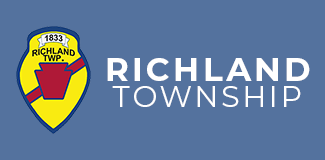Formed from Conemaugh Township in 1833, Richland Township was named “for the quality of the land therein.” With the opening of the Pennsylvania Canal three years earlier, merchandising in the Johnstown area increased and farmers in the surrounding locales such as Richland found it quite profitable to sell in the city. This economic expansion brought more sawmills and more land cleared for farming. In the following decade, the booming iron manufacturing industry brought slow-but-steady growth to Richland as more merchants and businessmen arrived in the area to provide supplies, furnishings and housing to the growing workforce.
The era following the Civil War was one of innovation and improvement. Telephone service, streetcar lines and the first gas station were among the technological advances arriving in the region during this time; however, the establishment of a strong school system had the most far-reaching impact on the young people in Richland Township. More than eight elementary schools were built from 1900 to 1914 and the first high school classes were held in the election house in Geistown in 1917 and 1918.
The last 80 years have borne witness to many changes in Richland. The rise of the steel industry following World War II turned Richland into a comfortable middle-class suburb of Johnstown as well as a thriving retail and commercial district to meet the needs of the new residents. In advance of the steel industry’s decline, the Township once again benefitted from its rich lands and advantageous location. The airport and Route 219 enabled people and products to move in and out of the region more easily, while the construction of the University of Pittsburgh branch campus and the Johnstown-Cambria County Industrial Park demonstrated a commitment to improving education and expanding employment. Today, Richland continues to lead the Johnstown region in growing opportunities for the future.
